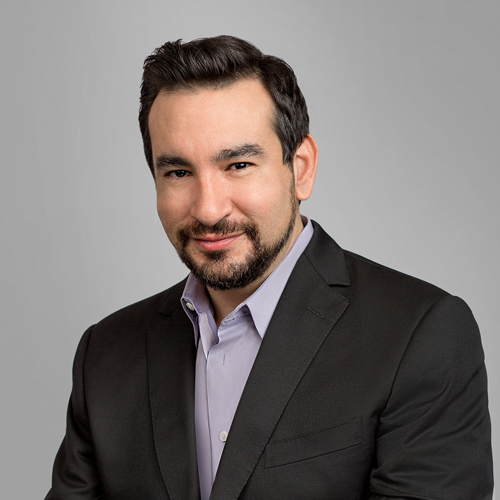In 2009, the thick of the financial crisis, banks were failing, homeowners were defaulting on their loans, and Antonio Molestina was joining the US division of Dutch banking company ABN AMRO. At the time, it was a small, open-space office with only 10 employees.
Fast-forward to 2015, and the company’s US growth has increased to almost 500 employees, with year-over-year profits. Today, ABN AMRO balances a long-standing legacy of banking with modern-day technology to maintain nimbleness under a constantly changing business environment and an increased focus on compliance with evolving laws and regulations.
ABN AMRO’s history dates back to 1720. In fact, a previous incarnation of the bank financed the Louisiana Purchase. When Molestina found that out, he did some digging to find that his institution still held copies of the deed of mortgage document for the historical purchase. As a history buff, and the company’s US general counsel and head of compliance, Molestina feels he has the opportunity to make history with the company in its most recent post-recession evolution.
“From the time I’ve been here, it’s been really interesting,” says Molestina. “I worked on Wall Street for a long time, and when I came on board with ABN AMRO, I had been a general counsel at two previous institutions, both on Wall Street. I show up, and there were just 10 of us. We had to build up this franchise from scratch. All of a sudden, I found myself reading laws and regulations I had never concerned myself with before. It was a unique experience—I was working to establish a broker-dealer deal on Thursday and helping the guys plug phones into the wall by Saturday. For me, the experience was just completely outside of my expectations, but it created a real sense of ownership.”
Before joining ABN AMRO, Molestina was US general counsel at Fortis Bank. He was also the head of the US legal team at the Canadian Imperial Bank of Commerce (CIBC). That, coupled with his international upbringing, enables him to have a perspective that parallels multinational companies.
Molestina was born in Santiago, Chile, and grew up in both Santiago and Quito, Ecuador, until his teens. In his late teens, his family moved to Madrid, Spain. He says he draws upon his international experience in navigating complex US legal regulatory environments, which are sometimes counter intuitive. With an international perspective, Molestina is able to foresee where some of the understanding gaps will be in the future.
This has been increasingly important in today’s post-recession financial climate. Molestina has had to evolve from a transactional lawyer into more of a regulatory lawyer. He also has to focus more on compliance issues.
“The volume of laws and regulations that have come out since the financial crisis is more than we’ve experienced in many decades. If you’re going to be
at the helm of a legal department in this era, you—by definition—have to be more of a regulatory lawyer.”
Antonio Molestina
“The volume of laws and regulations that have come out since the financial crisis is more than we’ve experienced in many decades,” Molestina says. “If you’re going to be at the helm of a legal department in this era, you—by definition—have to be more of a regulatory lawyer. My role has become increasingly important after the financial crisis because the business now owns compliance issues and responsibilities much more than it did 20 years ago.”
“ABN AMRO recognizes that these issues are its primary responsibility, and that has thrown legal and regulatory experts into center stage,” Molestina says.
As the face of ABN AMRO’s US legal and compliance departments, Molestina has to deal with the interplay between European and US legal and regulatory relations. On any given day, Molestina can be asked to advise on the US regulatory consequences of something happening in Australia, Singapore, or Brazil. With the US dollar being used extensively internationally, his role as ABN AMRO’s US head of legal and compliance is reliant on where the dollar goes. He can spend one day ensuring that the company has the right legal counsel for a certain issue, and be flying to Amsterdam to meet with the company headquarters’ legal or compliance team on the next.
Molestina is continuing the work of reestablishing a robust presence in the US for ABN AMRO’s corporate clients. The bank currently has offices in New York, Chicago, Dallas, and New Brunswick, New Jersey. ABN AMRO doesn’t have any branches in the US and it currently conducts its operations through a group of subsidiaries. Molestina expects this to change in time with a licensed New York bank branch. Molestina says this would be an important step for the bank because of New York’s reputation as a center for international commerce and trade. The bank recently became a publicly traded company in the Amsterdam stock exchange.
Banking today is different than it was when Molestina was a child. He had to stand in line with his mother to deposit a check, make a transfer, and withdraw funds. Today, these functions are done with a few taps on a smartphone. “Banking doesn’t end at 5p.m. anymore and it doesn’t even start at 9a.m. like it used to in the old days,” Molestina says. “It’s global, and it’s 24/7, no matter where you are.” Technology has changed the banking industry just as much as any other, says Molestina, and he is hopeful that this will only create more opportunity for the international bank.

